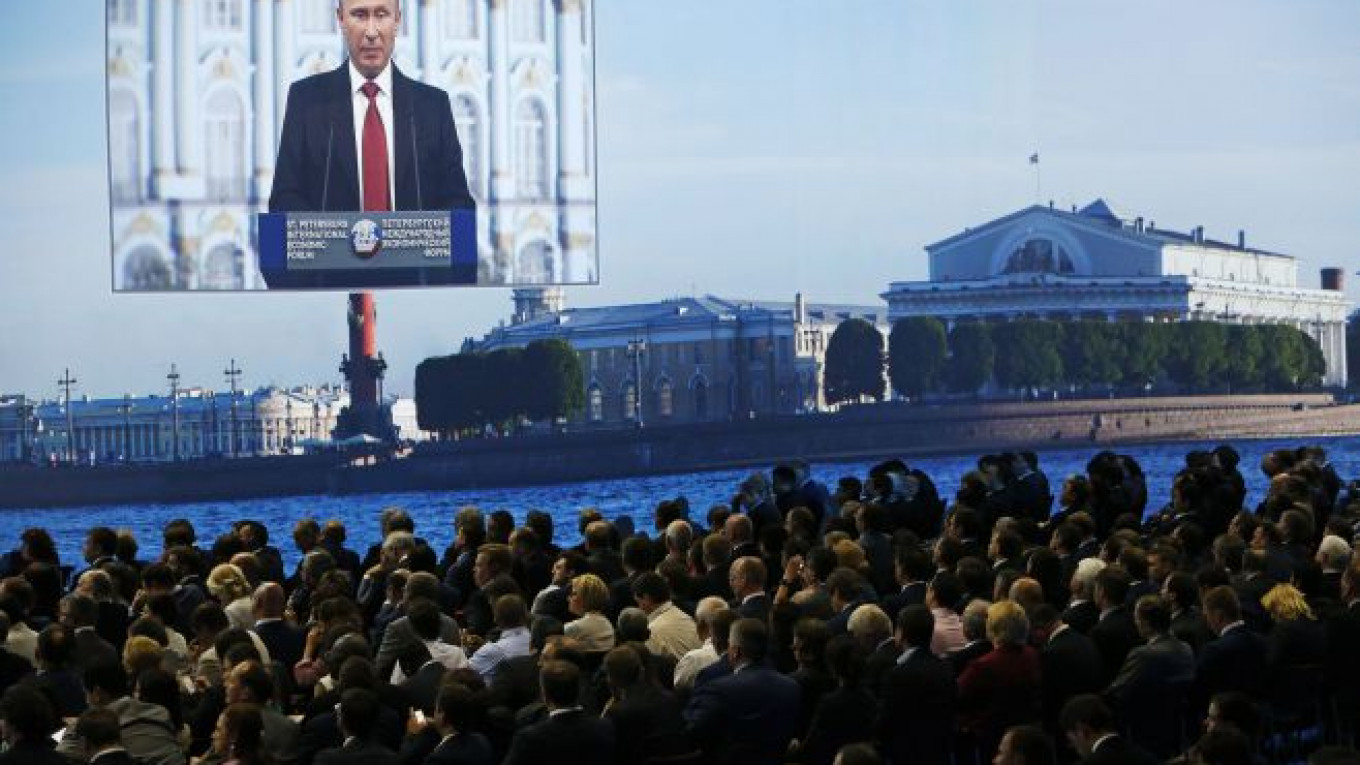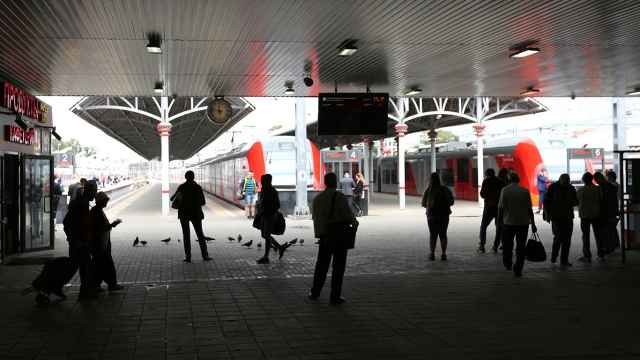President Vladimir Putin and top officials have pledged to keep the costs of borrowing down by raising the capitalization of major Russian banks using debt-equity swaps and, possibly, federal budget funds.
"The capitalization of systemically significant Russian banks will be increased ... to allow banks to expand their opportunities to finance the economy and lower the cost of loans," Interfax quoted Putin as saying Friday in his address to assembled domestic and foreign businessmen at the St. Petersburg International Economic Forum.
Russian banks are under pressure to boost capital from two sides — a sharp economic slowdown is eroding the quality of loan portfolios, while at the same time major Russian companies, finding it harder to raise financing from Western lenders spooked by the Ukraine crisis, are turning to Russian banks for big loans. Officials are worried that banks could react by hiking interest rates, which will do nothing to speed Russia's economic recovery.
Two solutions have been floated. One idea, referenced by Putin in his address to the forum, is to convert banks' subordinated debt into preferred stock. By transforming liabilities into equity, such a maneuver would automatically top up the banks' capital.
After Putin's speech, presidential aide Andrei Belousov told journalists the measure is "absolutely necessary," Interfax reported. The Central Bank and Finance Ministry will have "a few months" to develop a mechanism for these conversions and to decide which banks will have the option, Belousov added.
Earlier this week, Economic Development Minister Alexei Ulyukayev estimated the scale of the necessary recapitalization at between 200 billion rubles ($5.9 billion) and 300 billion rubles ($8.8 billion).
To fill that gap, debt-equity swaps are not the only option on the table. Finance Minister Anton Siluanov was quoted by Interfax as saying on Friday that banks could receive additional capital from the federal budget "if necessary."
"For next year, we have a reserve of 85 billion rubles ($2.5 billion) in uncommitted funds, and when examining next year's budget we will evaluate the situation in the banking sector," Siluanov told journalists on the sidelines of the forum.
A Message from The Moscow Times:
Dear readers,
We are facing unprecedented challenges. Russia's Prosecutor General's Office has designated The Moscow Times as an "undesirable" organization, criminalizing our work and putting our staff at risk of prosecution. This follows our earlier unjust labeling as a "foreign agent."
These actions are direct attempts to silence independent journalism in Russia. The authorities claim our work "discredits the decisions of the Russian leadership." We see things differently: we strive to provide accurate, unbiased reporting on Russia.
We, the journalists of The Moscow Times, refuse to be silenced. But to continue our work, we need your help.
Your support, no matter how small, makes a world of difference. If you can, please support us monthly starting from just $2. It's quick to set up, and every contribution makes a significant impact.
By supporting The Moscow Times, you're defending open, independent journalism in the face of repression. Thank you for standing with us.
Remind me later.






